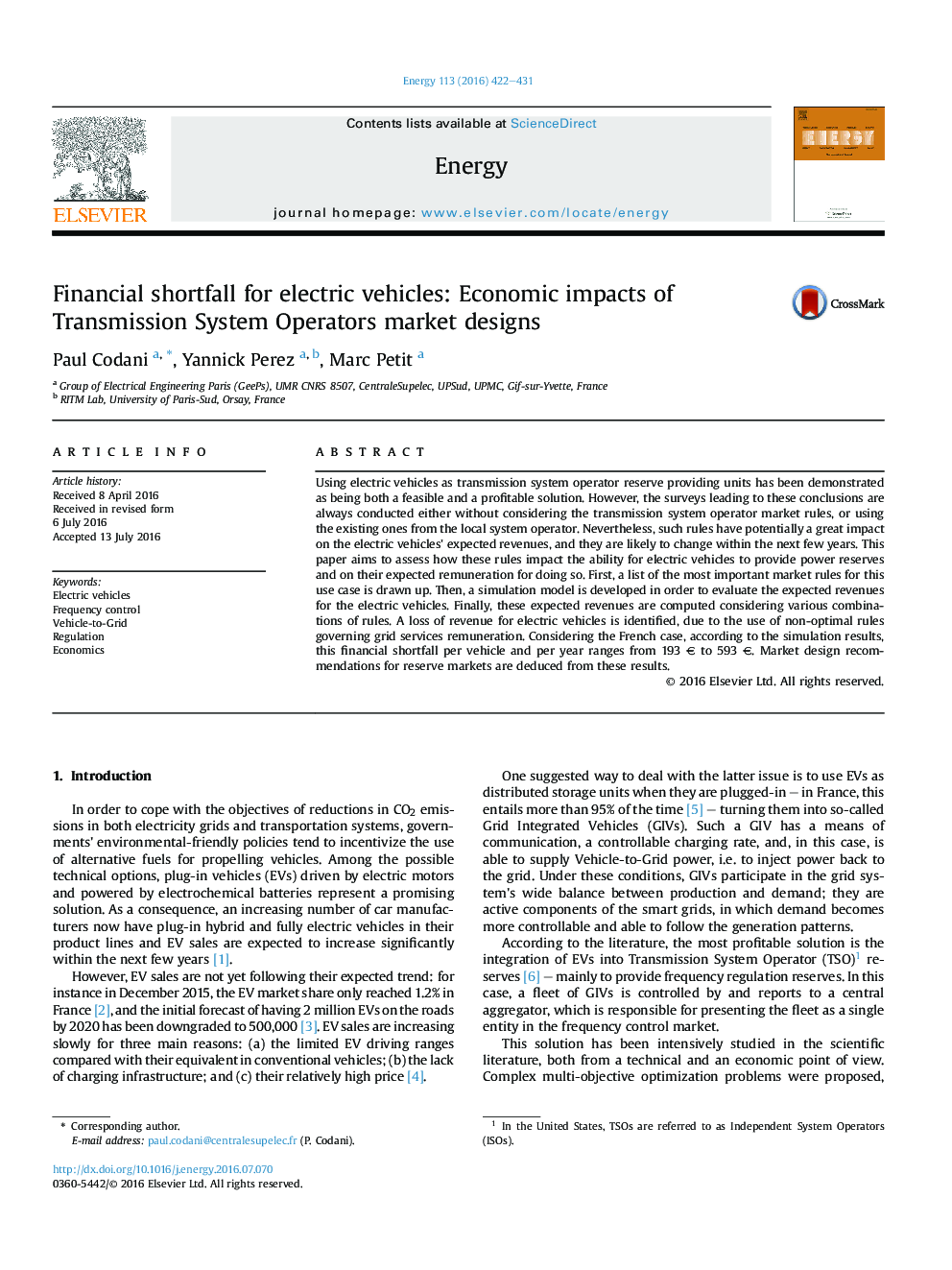| Article ID | Journal | Published Year | Pages | File Type |
|---|---|---|---|---|
| 1730751 | Energy | 2016 | 10 Pages |
•The frequency control market rules of six representative markets are reviewed.•The provision of frequency control products by electric vehicles is considered.•A model for the vehicles participation in frequency control markets is proposed.•Vehicles' expecting earnings are calculated: they depend largely on the market rules.•Market design recommendations are derived from these findings.
Using electric vehicles as transmission system operator reserve providing units has been demonstrated as being both a feasible and a profitable solution. However, the surveys leading to these conclusions are always conducted either without considering the transmission system operator market rules, or using the existing ones from the local system operator. Nevertheless, such rules have potentially a great impact on the electric vehicles' expected revenues, and they are likely to change within the next few years. This paper aims to assess how these rules impact the ability for electric vehicles to provide power reserves and on their expected remuneration for doing so. First, a list of the most important market rules for this use case is drawn up. Then, a simulation model is developed in order to evaluate the expected revenues for the electric vehicles. Finally, these expected revenues are computed considering various combinations of rules. A loss of revenue for electric vehicles is identified, due to the use of non-optimal rules governing grid services remuneration. Considering the French case, according to the simulation results, this financial shortfall per vehicle and per year ranges from 193 € to 593 €. Market design recommendations for reserve markets are deduced from these results.
